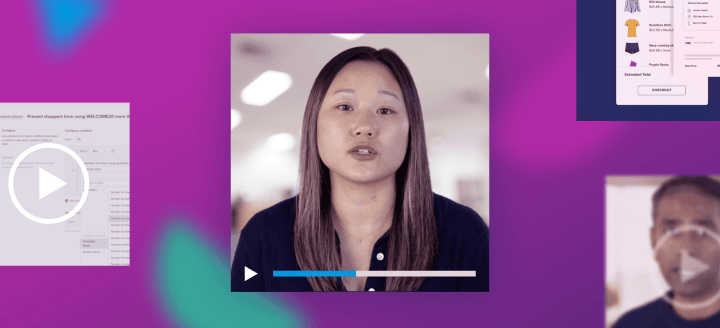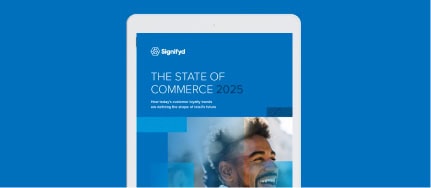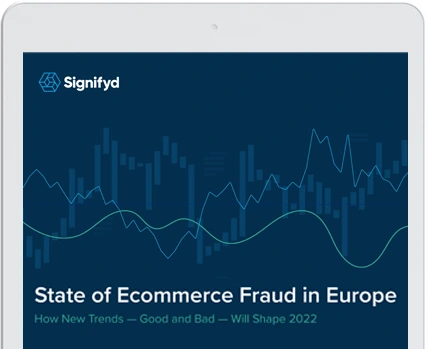It seems a tad early to declare 2022 “The Year of Transactional Risk Analysis” (TRA) and maybe you find the idea that this year could be just that a little less than inspiring.
But this is serious business — literally — for online commerce and those who serve ecommerce companies in Europe and the UK in particular. As enforcement of the (PSD2 authentication requirements) regulation’s Strong Customer Authentication (SCA payments) requirement begins in the UK in March and intensifies elsewhere in the region, payment service providers (PSPs), the backbone of online transactions, will find a valuable opportunity to distinguish themselves from the competition.
That sort of differentiation is increasingly important for PSPs in the payment SCA era. We are already living in a time when merchants change PSPs every few years in search of the best pricing and the highest approval rates. And now with that attention on PSP performance intensified, the frenetic scramble for approval rates is about to become a lot more heated.
- Differentiation is more important than ever for PSPs as Europe moves more deeply into the SCA era.
- PSPs can best serve their customers by optimizing the way they’re able to manage exemptions.
- The key to maximizing access to exemptions is deploying robust transaction-risk-analysis strategy and technology.
Let’s take a step back to see why: We believe the impact of the SCA — which started being widely enforced in Europe in 2021 and which will be enforced in the UK beginning March 14 — will accelerate rapidly by mid-year as issuing banks begin declining more and more transactions due to tougher SCA enforcement.
At that point, having a high-quality transaction risk assessment (TRA) solution will become a major point of differentiation for PSPs. It will help merchants mitigate the downside of SCA, which introduces friction into the payments process, while keeping the security benefits. As PSPs will be the key influencer when it comes to TRA approvals, PSPs that can provide the best and most consistent exemptions will hold a significant competitive advantage.
Exemptions, exemptions, exemptions!
SCA is a double-edged sword for merchants. While it’ll be a significant help in reducing fraudulent transactions and the subsequent costly chargebacks, it also interrupts the seamless checkout experience most merchants go to great lengths to protect. Two-factor authentication introduces friction into the buying experience for consumers.
Signifyd research indicates 65.5% of consumers wouldn’t buy with an online retailer again if they suffer a false decline (possibly as a result of wrongly failing 2FA) and 53% would give a retailer no more than one chance after a bad online experience. Even if consumers aren’t wrongly bounced from a transaction, some might not be willing to go through all the new hoops in the first place. Ouch.
Take heart. There is hope for merchants and their exceptionally jittery but dearly cherished customers. Exemptions!
Exemptions excuse customers and merchants from going through two-factor authentication in order to complete a transaction. They will be merchants’ most reliable and powerful tool for mitigating the downside of SCA and merchants will want to apply the maximum number of exemptions they can to guarantee a smooth checkout experience for their customers.
Exemptions come in many flavours. Most are clear-cut and defined by the nature of a payment e.g. B2B payments, recurring payments, mail or telephone orders, international payments, payments received by trusted sellers, and low-value payments (under €30).
But there’s another category of exemption which has to be earned, and these will be by far the most powerful for most merchants – and a massive deal for PSPs. This type of exemption is for low-risk payments.
One exemption to rule them all
Low-risk payments are the one category of exemption which depend on the PSP, not the merchant. If a PSP has a low enough overall fraud rate, then they can request a low-risk payment exemption on behalf of their merchants (for which they will be very, very grateful).
But a PSP can only request a low-risk payment exemption if it has managed to keep its fraud rate below thresholds outlined in the PSD2 strong customer authentication regulation. The thresholds are as follows:
- 0.13% to exempt transactions below €100;
- 0.06% to exempt transactions below €250;
- 0.01% to exempt transactions below €500.
Imagine for a moment you are a merchant who sells luxury or designer goods. It’s a fair guess to say most of your transactions will not be below €30 — the ceiling for a low-value exemption. So, low-value exemptions really won’t be helping you out at all. All the more reason merchants will be in the market for a PSP that has kept its fraud rates low and has the TRA exemption as an option. PSPs need to be ready for this to be a major point of differentiation and competition.
An important caveat here: although PSPs are in the driver’s seat in applying for low-risk payment exemptions on behalf of merchants, the buck stops with the issuing bank who will decide whether to apply the exemption or not.
How PSPs will max out exemptions for their merchants
All of which brings us back to Transaction Risk Analysis and the question of how PSPs can best take advantage of the option. Signifyd’s answer: technology that helps PSPs understand the identity and intent behind every transaction.
Signifyd’s machine learning Commerce merchant protection from chargeback Platform allows PSPs to conduct real-time fraud analysis. That in turn means they are eliminating false positives and sending issuing banks clean transactions, which makes it more likely the issuing banks will look upon the PSP’s transactions more favorably, leading to higher authorization rates.
Not only that, but Signifyd’s solution provides an advanced exemptions management engine that identifies orders that don’t require SCA to be processed. And it determines the most efficient route for those orders that do require SCA — ensuring a seamless experience for the end consumer and providing retailers with maximum conversion and optimised revenue.
Low PSP fraud rates allow for requesting the maximum number of exemptions
All the while, the PSP is keeping its fraud rates low, which means they are able to request the maximum number of exemptions, providing merchant’s customers with a seamless buying experience.
It’s a virtuous cycle: The PSP keeps its fraud rates low, which means more potential for low-risk exemptions, which means more frictionless conversions, which keeps merchants’ customers coming back, which means merchants want to stick with the PSP that is contributing to their success.
All sounds pretty clever, right? And there’s even more hidden incentives for PSPs.
But what about liability? If PSPs now apply for exemptions on behalf of merchants, do they take on the merchant’s liability too? Luckily for PSPs, the answer is no.
Finding your perfect TRA solution
When exemptions are applied, the liability remains with the merchant in case the transaction turns out to be fraudulent. Even when exemptions are applied and the liability is passed to the issuing bank, merchants are still liable for all other chargeback types (INR, SNAD, etc.)
That means merchants will want to make sure they are relying on a best-in-class solution for payment fraud protection, but from all chargeback types, chargeback item not received (INR) and claims that products received were significantly not as described (SNAD) or chargeback not as described.
Advanced TRA solutions, such as Signifyd’s Commerce Protection Platform, will become increasingly important to PSPs in 2022 (and beyond) as they begin to see their immense value. No questions, PSPs that have not yet seen the light should get ahead of the curve and find their perfect TRA solution now.
Photo by Getty Images
Exploring how to best manage SCA exemptions? We can help.








